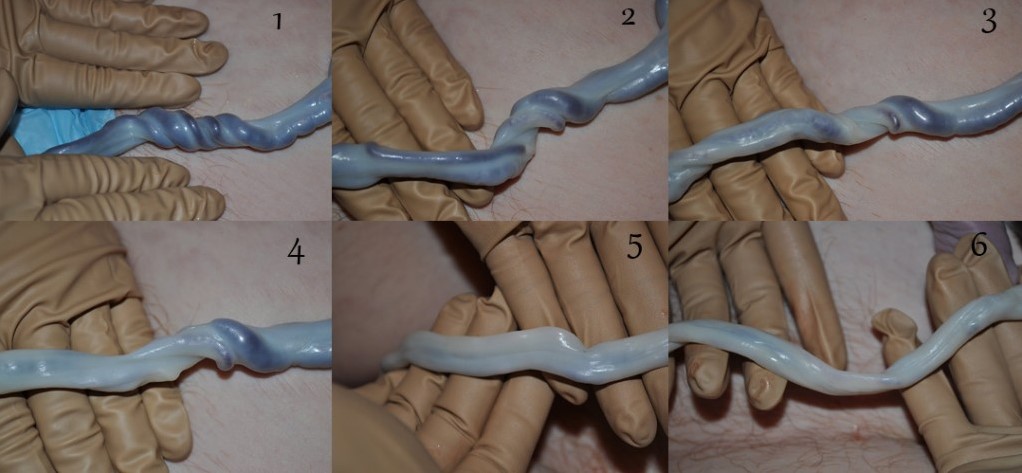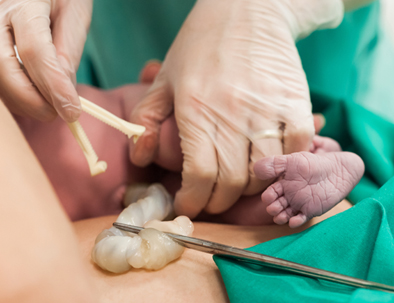Why Delay Cord Clamping after your baby's birth?
It is estimated that up to 30% of the newborn's blood supply is transferred from the placenta and umbilical cord to the baby after birth! This only happens if the cord clamping is delayed until the cord stops pulsing and turns white/opaque. That 30% of blood has iron/red blood cells, white blood cells (immune system), significant blood volume, stem cells and so much more that are essential to the baby for the best possible start. There are many reasons to delay cord clamping, and you can certainly make this part of your birth plan.
"Delayed cord clamping promotes a healthy neonatal cardiopulmonary transition, prevents iron deficiency at a critical time in brain development, provides the newborn with a rich supply of stem cells, and helps sick neonates achieve better outcomes—all with little apparent risk to mother or baby. The evidence of benefit from DCC is so compelling that the burden of proof must now lie with those who wish to continue the practice of immediate clamping, rather than with those who prefer—as nature intended—to wait." (see article below)
Wait for White: This series of pictures shows what happens over 15 minutes with cord intact.

Common Objections to Delayed Cord Clamping - What's The Evidence Say?
A really good article by a Mark Sloan, pediatrician and Fellow of the American Academy of Pediatrics for more than 25 years. This article addresses all possible objections to delayed cord clamping, and effectively debunks each of them, concluding, as in the paragraph above, there is NO good reason NOT to delay cord clamping.

2017 Australian study showed delayed clamping saves premi lives
A University of Sydney team of doctors reviewed the findings of 18 global trials involving nearly 3000 babies born before 37 weeks gestation. They found that delaying the cord clamping may save thousands of babies lives each year. With zero added cost.
More support for delayed cord clamping
Dr Sarah Wickham is a much respected midwife, author, and researcher. Her article here starts - "....added further support to the movement towards delayed cord clamping becoming the norm, warning that immediate cord clamping can be harmful to babies by negatively affecting their blood flow and reducing iron stores, the latter being associated with neurodevelopmental delay in babies. Read more...

The Placenta: essential resuscitation equipment
Dr Rachel Reed has written this very informative article on the importance of the placenta for babies needing breathing support: "Babies are born with their own resuscitation equipment. The placenta not only helps the baby to transition, but assists with resuscitation if needed. There is no reason to clamp and cut the cord of a baby who needs help. Doing so will create more problems for the baby and mother. Anything that needs to be done can be done with back-up from the placenta, and the involvement of the mother." . Read more...


